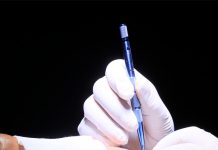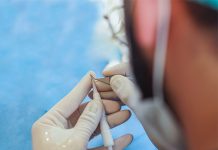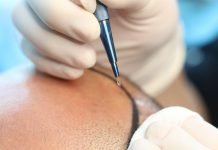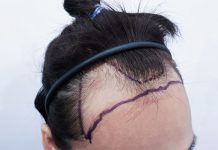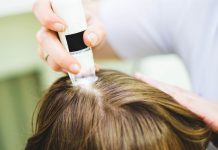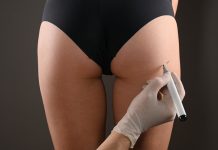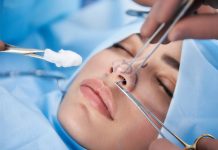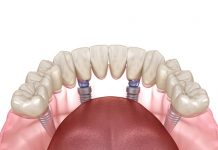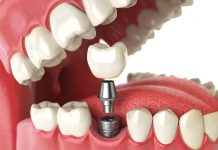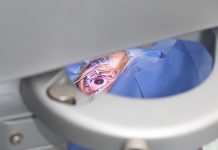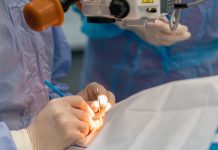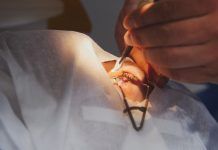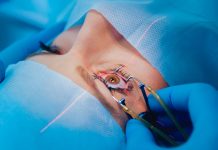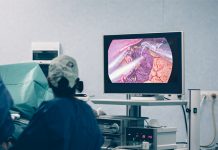Nose Job (Rhinoplasty)
Nose Job procedure in Turkey, its average cost, types of Rhinoplasty surgery and everything you must know or consider before the operation are explained.
Nose job, also known as Rhinoplasty, is one of the most common surgical operations during which different kinds of nose reshaping procedures such as nose reduction or augmentation may take place. It is being conducted in many countries and Turkey is one of its competitors; hence, most of the best nose job results come from there since it is a highly demanded operation by women and also men who are willing to change the way their nose seems for a more pleasant facial complexion. Turkish rhinoplasty has come a long way due to being on demand for many years to our day. As well as women seeking a more symmetrical appearance, nose job has also been the choice of men in Turkey.
Although nose job prices in Turkey may vary from region to region or from doctor to doctor, an average Turkish nose job cost may range from £1,250 to £4,500 depending on the type of the procedure. The nose job operation creates drastic positive changes regarding the appearance of the patient. Patients are usually able to leave the hospital the same day after nose job surgery. However, recovering from rhinoplasty and returning to basic normal activities will most likely require a week or two. Be it a naturally asymmetrical nose, an injury related out-of-shape appearance or congenital complications regarding one’s ability to breathe, one can find many motivations to apply for nose job.
Important Points to Consider Before Nose Job (Rhinoplasty)
The nose itself is a very central feature of our face; so any alteration it might go through has the possibility of creating huge changes. Although it is a popular and a very old type of nose job operation, you have to carefully contemplate the whole issue and you must consider the information below before having a nose job:
Genetics:
- A typical human being inherits the shape of their nose from their ancestors. Your nose keeps growing and reaches its final shape nearly until the age of 16. If you are planning to have rhinoplasty, you had better wait until you are above 16 for the best possible results and to avoid any future disappointments.
- Every person is unique, so is their nose shape. It would be your best move to determine what you don’t like about your nose area and to mark the points you wish to improve beforehand. By doing so, you will have made it easier for your nose job surgeon to fully comprehend your needs as well as increasing your post-operation satisfaction. You have to be able to neatly describe what you expect from Rhinoplasty surgery by referring to the points you are not currently rather fond of. Your surgeon will create a customised nose job operation plan for you.
Insurance and Budget:
- Sometimes, a certain part or all of the nose job cost is covered by insurance. You may want to consider learning more about this advantage if you are planning to have rhinoplasty on a budget. Health insurance generally does not involve covering procedures merely done for cosmetic reasons. It would be much better to learn what they are able to cover and what is not involved in advance.
Your Overall Health and Habits:
- If you are a smoker, you should stop smoking prior to nose job operation. Smoking causes the level of oxygen carried by blood cells to decrease, thus slowing down the healing process after surgery. In addition to this, it is more likely that it will make you prone to post-operation infections.
- Your surgeon will also like to discuss your overall health before the nose job operation. Your wellness affects your healing process. On the other hand, such discussion would make possible health risks visible for your doctor so they can take some precautions in case something goes unexpectedly wrong.
Your Expectations:
- You must be aware of the fact that there is no such thing as a perfect nose or, to put it more properly, such thing as perfection. Cosmetic surgeries are solely able to enhance your facial features; they do not make them perfect or flawless. Perfection is just a superficial concept and its definition changes for everyone; therefore this concept itself does not indicate a universal aesthetic truth. Your facial features are unique; they are in exquisite harmony highlighting your natural beauty. Plastic surgeons are able to detect those unique features and angles of your face. They are able to tell you how possible changes will affect your appearance. So you must keep your expectations realistic.
Choosing the Right Surgeon:
- Your choice of surgeon matters greatly when it comes to cosmetic operations. You must make sure that the doctor you choose is a fully trained plastic surgeon. You may want to check their registration if you like. They must be registered as a specialist ENT rhinoplasty surgeon and they must have a licence to practise. ENT stands for ear, nose and throat. Once you think that you can rely on a specific surgeon, conduct a comprehensive research about them. Talk to their previous patients if you have to; check their social media marketing pages and gather information. Do not ignore reading the comments on those pages, see if there is any negative one to take into consideration.
- You should book an appointment with the surgeon you have chosen before the nose job operation. During the appointment, you should discuss their qualifications, their experience, how many nose reshaping operations they performed, how many of these operations caused complications, what sort of a plan you should follow if things go suddenly wrong and the satisfaction rate of their patients. A good surgeon usually makes you book at least two consultation appointments before the nose job operation, each having at least a week or two between them.
Finding the Right Source:
- It would be splendidly on point if you try to be careful when you are in search of a doctor and clinics via the Internet. Some clinics pay for advertising themselves and they may pop up on your search list, usually on the first pages. You should also watch for tricksters who are only after your money.
- Talking to your friends and family and learning their opinions might be beneficial for your whole process before you decide on having a nose job.
Your Mental Health:
- If you are not sure about the effect this surgery may have on your emotional and mental health, you can even visit a therapist or a clinical psychologist to discuss this issue. By doing so, you may be able to have more realistic insights and expectations as to how this would affect you afterwards. This move will reduce your anxiety and will make you able to think more clearly.
What Does Nose Reshaping Involve?
As mentioned before, it aims to reshape the nose either by reducing the size or by applying the procedure of augmentation. To fully perceive the process, we must first examine the nose as an external organ. The nose could be divided into three different areas:
- The upper portion (made up by the bone).
- The lower portion (known as the cartilage).
- The skin upon the nose itself.
Nose job aims to change the structure of these parts: the bone, the cartilage and to alter the way people see the skin.
1) Reduction rhinoplasty:
Your nose size could be reduced by removing some of the cartilage and bone, thus making your nose appear smaller. Since the bone and the cartilage will not need to touch the skin over your nose, the skin will eventually shrink to its new shape; so will the appearance of your whole nose. As well as the cartilage and the bone, your surgeon may find it necessary to make changes in your nostrils, too. They might have to make small cuts in the skin covering nostrils.
2) Augmentation rhinoplasty:
Your nose can be expanded with this procedure. To apply this, surgeons will remove some excess cartilage or bones from other body parts such as ears, elbows, hips or skull. Cartilage is mostly taken from ears whereas bones are collected from elbows, ribs, skull or the hip bone. They will use those parts to build up the nose again. This augmentation nose job operation is indeed very much similar to “grafting”; that is why this process is called a graft by some people.
Your nose job surgeon might also choose, however, using an artificial implant instead of these body parts. Towards to end of the surgery, your surgeon will close the cuts inside your nostrils and the stitches there will dissolve on their own, so you won’t need to have them taken out. Nevertheless, if you have stitches on the external surface of your nose, you will need to have them taken out by healthcare professionals following the first week after surgery.
3) Changing the shape of your nose:
This time, your nose is being reshaped by breaking the bone and rearranging the posture of your cartilage. Nostrils will also go through a change at the end of this process.
4) Changing the angle between the nose and the top lip:
After these operations, the skin upon your nose should shrink or expand to its new shape. This requires the skin between patients’ nostrils (columella) to be cut (open rhinoplasty) or the whole operation will be conducted by creating tiny cuts inside the nostrils (closed rhinoplasty). The latter type of operation leaves no visible scars; the swelling it might cause is relatively less and it does not take much time like the former. However, it is not always possible or available. Closed rhinoplasty is not for everyone, your surgeon will explain if you are suitable for such type of procedure or not.
If your condition is not suitable for this operation, then it is certain that you will go through an open rhinoplasty. This will also give you good results, it is preferred in the cases of substantial amounts of reshaping. Unlike closed rhinoplasty, you may notice small scars on your columella. These procedures may take 1.5 to 3 hours depending on the type of the chosen operation and the patient’s overall health. In some cases, you might need to stay in the hospital for 1 or 2 nights whereas in some other cases you might be able to leave the hospital the same day.
How Do You Prepare Yourself for Rhinoplasty (Nose Job)?
As mentioned earlier, you have to schedule an appointment once you choose your surgeon. If you settle on having a nose job, your doctor will demand some information from you and they are going to perform some examinations:
- Your medical history: First thing first, the most important thing your doctor will ask you is your medical history as to gather some insight regarding your overall health. Answering these questions may provide extra information for your surgeon about your motivation for surgery and what you can expect from it. For instance, they might ask you if you have had a history of nasal obstruction, so they can work towards improving your breathing, as well. Your doctor should also know about the previous surgeries you have gone through, the medications you currently use and your chronic conditions. If you have a bleeding disorder such as haemophilia, for instance, then it means that you will not be eligible for having rhinoplasty.
- Physical exam: Your doctor will examine your nasal area by measuring its shape and size during your appointments prior to the surgery. They will also want to know about the inside of your nose; the thickness of your skin and the strength of the cartilage, for instance, are vital aspects that have the possibility of affecting your final results. These physical examinations are also crucial in terms of estimating the effect of rhinoplasty on your breathing. Besides these physical examinations, they will also demand laboratory tests like your blood values in order to obtain a comprehensive account of your health.
- Photographs: Someone from the staff in your doctor’s office will take photographs of your nose from different angles. These photographs can be manipulated by some computer software on your nose job surgeon’s device so that you can see what your results will more or less look like. Your surgeon will utilise these photographs to compare your before-and-after results. They can also be taken as an important reference point during the surgery. The most important asset these pictures will provide is that they will make specifying your goals easier for you during the discussions about your expectations from the nose job operation.
- Identifying your expectations: You should discuss your expectations and your motivations with your doctor. Your doctor will be able to explain what you can and can’t expect from this surgery from a realistic and an objective point of view. For instance, if your chin is small, they might recommend you having chin augmentation since a relatively smaller chin creates the illusion of a larger nose. You do not have to comply with those recommendations, of course. However, your doctor usually knows what would be the best choice for your facial profile and he or she can observe the blind spots on your face that you are not aware of. Sometimes, the facial features you perceive might be misleading because they are simply originating from certain imbalances on your face. It is indeed perfectly normal to feel a little bit self-conscious during those appointments. Yet, however much you feel insecure about your appearance, it is utterly critical that you are honest and open with your expectations and that you are able to discuss whatever you want from this surgery. Your doctor must know what you are actually expecting so he or she can guide you to your desired destination. Once your nose job surgery is scheduled, you need to arrange somebody to drive you home afterwards if you are going to be treated as an outpatient. On the other hand, it is another important point that you arrange for a family member or a friend to care for you a night or two since you will be partly numbed and confused by anaesthesia. You might suffer from memory lapses, slowed reaction time and impaired ability of judgment for some time.
- If you are a smoker, your doctor will recommend trying to stop at least 6 weeks before the nose job operation. It is undoubtedly one of the most vital parts of surgery preparation. The reason you must try this is due to the fact that smoking increases your risk of getting infections and this could harmfully slow down your recovery time. Additionally, your blood cells and your body, in general, crave for the adequate amount of oxygen when you smoke. Depriving your body of oxygen will make your scars heal at a slower rate than usual.
- If you currently have a cough, cold, sore throat or flu-like symptoms, you should wait until you get better and completely heal, as well. Going under the knife when your overall health is not at your best will also slow down your recovery process; plus, it will also make you susceptible to other infections. You can always reschedule the date of your nose job surgery until you are fully recovered; your doctor will prefer and recommend this, too.
- You will be asked to sign a consent form after you settle down on having the nose job surgery for sure. If you think you are fully informed about the process and if you feel you are happy to proceed, then you can sign this form without any overwhelming anxieties.
- Nose reshaping procedures usually take place when the patients are under general anaesthesia. This means that you are going to be asleep during the nose job surgery. It is crucial that you don’t eat or drink six hours prior to the nose job; otherwise, the anaesthetic substances might make you so sick that you will most likely feel the need to throw up somehow in a severe way, which you would not really like right after a facial cosmetic surgery.
- When the nurse responsible for your care is preparing you for the nose job, he or she might ask you to wear compression stockings. Wearing those will prevent the formation of blood clots in your legs. They might also say that you need anti-clotting injections as well as wearing those or you might just be injected instead of putting on compression stockings.
- You should also stop taking some kinds of medications such as aspirin or any medication containing ibuprofen (like Advil, Motrin IB, etc.) for nearly two weeks before and after the nose job surgery. The reason you must follow this step is that those kinds of medications may increase bleeding. It would be for your best that you only use these when approved or prescribed by your nose job doctor. You should also be careful regarding any herbal remedies or over-the-counter supplements such as vitamins, minerals and other kinds of easily-attainable medications; it would be most proper if you quit using those as it is in the case of formerly mentioned medications.
What You Can Expect During and After the Nose Job Surgery?
Nose job operations are customised surgeries; therefore they do not have a certain order or an absolute series of steps. Since every person’s surgery is unique and everyone has specific anatomic goals, it is nearly impossible to follow just one way of operating.
During the Nose Job Surgery
Rhinoplasty can be performed in two different types of anaesthetic procedures. It either requires local anaesthesia with sedation or general anaesthesia. The type of the anaesthetic often depends on the complexity of your nose job surgery and what your surgeon would prefer in your case. You might want to discuss with your doctor before the surgery which type of anaesthesia is most appropriate for you.
- Local anaesthesia with sedation: If you are going to be treated as outpatient, this type of anaesthesia is usually preferred by your surgeon. It aims to sedate a specific part of your body. Your doctor sedates your nasal tissues with pain-numbing medications lest you should feel any kind of pain and you are also being sedated with medication injected through an intravenous (IV) line. This makes you groggy and drowsy but not completely asleep.
- General anaesthesia: You take the anaesthetic substance by inhaling it or through an intravenous line placed in a vein in your hand, neck or chest. This type of anaesthesia affects your entire body and it causes you to be unconscious during whole surgery. It requires using a breathing tube.
After anaesthesia comes the deed of nose job surgery itself. As already mentioned before, nose job is a surgical procedure that can either be performed inside your nose or through small external cut/cuts (incision) at the very base of your nose, right between the nostrils. In accordance with your customised steps of nose job surgery, your surgeon will most likely endeavour to readjust the bone and the cartilage underneath your skin.
During the nose job operation, your doctor may change the shape of your nasal bones or the cartilage depending on how much needs to be removed or added, your unique nose structure and currently available surgery materials. For small changes, doctors usually use the cartilage taken from the deeper parts or your nose or from your ear. For larger changes, though, the cartilage usually needs to be taken from your ribs or it needs to be replaced by implants or bones from other parts your body such as the hips. After those internal changes take place, the skin and the tissue of your nose is placed back by your surgeon. The incisions in your nose are also stitched.
If your septum (the wall between the two sides of your nose) is crooked or bent, your doctor might also consider correcting it in order to improve your breathing. After the nose job surgery, you’ll be transferred to a recovery room where the staff will monitor your return to wakefulness lest any unexpected occurrence should pop up. Depending on your overall health, you might leave the hospital later that day or you might need to stay overnight if you have any other health issues.
After the Nose Job Surgery
You can feel a little bit tightness and soreness in your nose after the Rhinoplasty, mostly around the tip. If you want to relieve pain, you may consider using over-the-counter pain killers like paracetamol or ibuprofen. However you should always consult to your doctor and read the leaflet that comes with your medicine before using it. You need to rest in bed with your head raised higher than your chest to avoid bleeding and swelling. Your nose might feel congested due to swelling or from the splints placed in your nose.
If you have gone through general anaesthesia, it might take its toll on you. You might find yourself not as coordinated as you’ve used to be or that it’s difficult to think in a crystal clear way, that your brain is somewhat foggy and dazed. However, you do not need to worry as this usually passes within 24 hours. In the meantime, though, you should be careful and avoid driving, drinking alcohol, operating any kinds of machinery or signing anything that bears importance. Always follow your nose job surgeon and anaesthetist’s advice.
In most nose job cases, the internal dressings remain in place for one to seven days after surgery. People are usually advised to wear a nasal splint for the first week in order to protect and to support the structure of their nose. This also nearly takes a week. During the days following nose job surgery, slight bleeding and drainage of mucus and old blood are possible consequences. These can also happen when your doctor removes the dressing. A “drip pad” might be placed under your nose to absorb any possible unwanted drainage. You should change this gauze as directed by your doctor and avoid placing the drip pad tight against your nose under any circumstances.
Recovering from Rhinoplasty
Everyone recovers from this nose job surgery differently, so you might need to take up to 2 weeks off from work during your recovery phase. Some might be able to return to their academic or professional routine sooner, some later. Several months will pass until you see the full effect of nose job and after 6 months the swelling will completely perish and your nose will be fully settled into its new shape. Do not be worried about this swelling though, as it will only be noticeable possibly by you and your doctor alone. If your doctor did not prefer using dissolvable stitches, they will remove them after about a week. The splint may also be taken off.
You’ll most likely feel a little bit bunged up for a week or two after the nose job and you’ll feel the need to breathe through your mouth. Your surgeon might prescribe nasal sprays to ease your congested nose. Bruises, swelling and redness will gradually fade away up to three weeks after surgery and you will be able to swim or perform some kinds of exercising again. In a period of 4 to 6 weeks, you can fully return to your exercise routine and perform strenuous exercise.
What to do to speed up your recovery after nose job?
- You should keep your head up as much as you can do. Use an extra pillow or two when you sleep for a few days after the nose job surgery. This will reduce swelling and lower the chance of bleeding.
- The splints on your nose must stay dry; you are to avoid hot baths, as well, until they remove your splints. You should take warm baths instead of showers while you still have bandages on your nose.
- Do not blow your nose during the first week. If you need to blow it, just try to wipe it gently. If you happen to sneeze somehow, try to do it with your mouth open for this helps protecting your nose.
- You shall not attempt to remove any crusts on your nostrils until you see your Rhinoplasty (nose job) surgeon to get your splints removed.
- Stay away from dusty or smoky environments until you fully recover to avoid any need to sneeze.
- Avoid extreme facial expressions like smiling or laughing.
- Brush your teeth gently, limit the movements of your upper lip while brushing, eating, drinking or speaking.
- Wear clothes that you can fasten in the front. Don’t take your clothes off by pulling them over your head. Avoid narrow t-shirts or sweaters.
- Don’t perform any intense exercise or sports such as rugby, football, volleyball, basketball, etc. for four to six weeks. You might return to swimming or mild exercises after nearly three weeks. You even had better get advice from your nose job surgeon before participating in those activities.
- If you wear glasses or sunglasses, you should pay attention to not resting them upon the bridge of your nose. Your forehead will be of perfect use for such a task. You need to prevent any pressure on your nose, even if it’s from your glasses.
- When you roam outside, use at least SPF 30 sunscreen especially upon your nose. Excessive sun exposure might lead to permanent nose discolouration after rhinoplasty. Do not forget applying the sunscreen very gently.
- Limiting your sodium intake might help swelling disappear faster.
- Do not put anything such as ice kits or cold packs upon your nose after nose job surgery.
- Your nose keeps changing throughout your life as you age, just like your face and skin. It will never be possible to say that you have attained your “final result”; yet most of the patients report that their swelling diminishes after six months or within a year of the nose job surgery.
- It is best to wait for some time before you fly, usually for a week or two. You should also wait for a few days before you drive. It is highly recommended you check your car insurance in the first place.
Results of Nose Job
Very slight changes, even millimetres, might cause large differences for your nose’s appearance. An experienced diligent nose job surgeon often gets a result that is highly satisfying. Yet in some cases, those slight changes might not do enough and your surgeon may decide for a second nose job surgery. If such a condition occurs, you must wait at least a year for the following nose job surgery until your nose stops going through visible changes meanwhile.
Side Effects of Rhinoplasty
After the nose job procedure, you may experience some side effects which are not threatening in the least sense; however they might be a little bit challenging:
- Soreness, swelling and bruising especially around your eyes.
- Stiffness and numbness, particularly at the tip; this might take a few months to completely disappear.
- Difficulty breathing through your nose due to nasal congestion. It gets better as the swelling recedes.
- A lightly bleeding nose for a week or two
- Sun sensitivity; you had better wear a strong sunscreen on your face and a hat for at least six months after nose job surgery.
Complications and things that might go wrong:
Nose job has the possible risk of resulting in:
- Permanent difficulty in breathing: It is usually normal to have difficulties in breathing for a time but it can turn into a chronic condition.
- Damaged cartilage wall between nostrils (septum).
- Altered sensation of smell.
- Heavy and sudden nose bleeds.
- Scars: these will be red, purple and then gradually face away. However, your surgeon might recommend an additional operation to make them less noticeable.
Plus, any type of nose job bears a small risk of:
- Excessive bleeding.
- Catching infections.
- An allergic reaction to anaesthetics.
If you happen to have one or several of these, your doctor will be able to explain how you can be treated and get rid of them.
Frequently Asked Questions About Nose Job (Rhinoplasty)
What is the exact difference between rhinoplasty and septoplasty?
Rhinoplasty aims to change the shape and the size of your nose. Your ability to breathe and your nose shape are intertwined aspects; that being the case, nose job might also aim to improve your breathing at times. Septoplasty, on the other hand, solely aims to improve breathing by altering the wall inside the nose, usually nasal septum, which divides nasal passages as left and right. When this septum is out of shape, it makes it harder for you to breathe. Septoplasty is often combined with rhinoplasty.
Is nose job simpler than it looks?
No. In fairness, Rhinoplasty is not a simple operation; it is rather a challenging cosmetic surgery both for the surgeon and the patient. This has several reasons, of course. First of all, one of the biggest aspects of this difficulty stems from the nose being a very central feature of your face. Any changes, good or bad, could make gigantic differences. Doctors tailor each operation in accordance with the specific needs of their patients, so they always have to be alert and extremely diligent.
Can you make my bent nose into a completely straight one with nose job?
The shape of your nose, of course, can be altered. However, in cases of severe injuries, it might not be possible to make your nose exactly as you want. Your Rhinoplasty surgeon has to arrange the skin of your nose and the size of your nostrils in proportion to preserve the balance in your face. Consequently, you might not get the dramatic change you want after just one surgery. You should discuss with your surgeon what you are exactly hoping to get from your surgery, and most importantly learn what you can realistically expect. Your surgeon may give you plenty of advice as to your possible options.
Do I have to stay in the hospital?
Most of the patients are usually able to leave the hospital the same day after the nose job surgery. In some very rare cases, however, you may be required in the hospital for a night or two if you are having challenges with nausea or have developed any complications.
How long does it take to fully recovery after nose job?
You must plan to take a week or two off from work, school or your other responsibilities. You are going to feel gradually better day after day. Patients often feel like themselves again one week after the Rhinoplasty surgery; they certainly feel much better as the days proceed. Once you reach your first week after the nose job surgery, you’ll probably be back to your usual activities and you can resume all of your other activities after two to four weeks. Regarding the swelling you’ll experience after the surgery, most of it passes during the first two or three weeks; however, you need to wait months until it completely resolves. People usually do not notice it anymore after a few months.
Are there any risks of Nose Job?
All surgeries are risky to some extent. Rhinoplasty, though, bears small risks and the complications it might cause are rare.
Does insurance pay for rhinoplasty?
Sometimes, it does. Yet, it depends on your insurance policy. Your doctor’s office might help you get an authorisation document from your insurance company yet this will not be a guarantee for the coverage. It’s solely a way to prove that rhinoplasty is a covered benefit. In some cases insurance pays for a certain part of nasal surgery, but not for other parts. You can contact the business office for further information.
What is the cost of nose job?
It depends on factors such as the complexity of your nose job surgery, your surgeon’s experience and training, and geography. It is between £1,200 and £4,500
Can I see my nose’s final shape after surgery?
Yes. Your doctor will take photos of your nose from different angles prior to surgery. They can manipulate these pictures to provide you with a glimpse of your future nose.
Is nose job painful?
Not for most people. Patients usually rate their pain between 0 and 4 on a scale from 0 to 10.
Will you pack my nose?
No. Packing is rather uncomfortable. Instead, your doctor will use some soft splints in your nose. This apparatus has a hole through which you can breathe. You can remove those easily after a week or so.
How long will I be bruised?
Bruising is not very common. It only occurs in some minor shapes and it shouldn’t last longer than a week or so.
What should I look for in a nose job surgeon?
You’ll probably want to go under the knife with a surgeon whose reputation is good among patients and other nose job doctors. If your surgeon has published many papers related to rhinoplasty or he/she has spoken at educational conferences, this is often a sign that they are reliable people.


